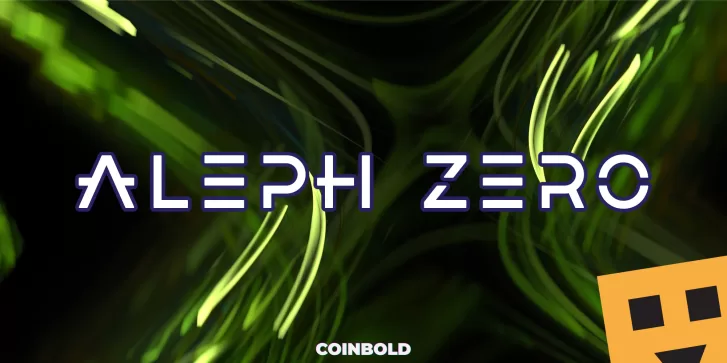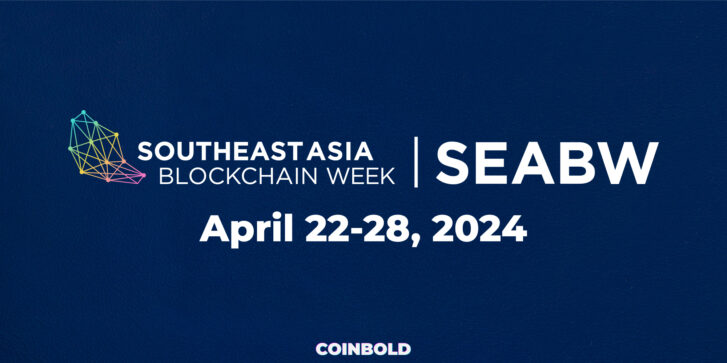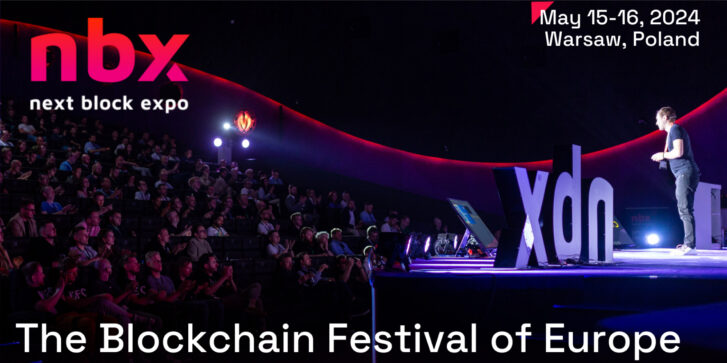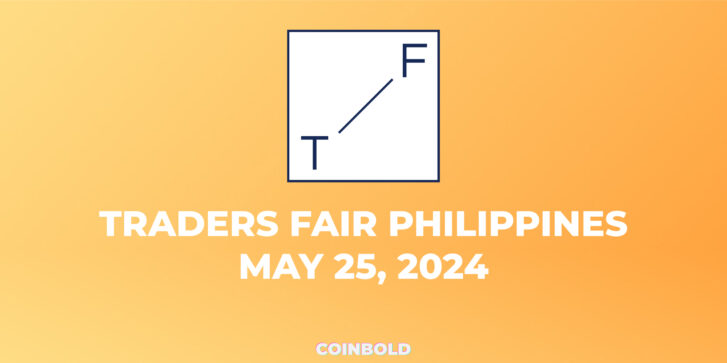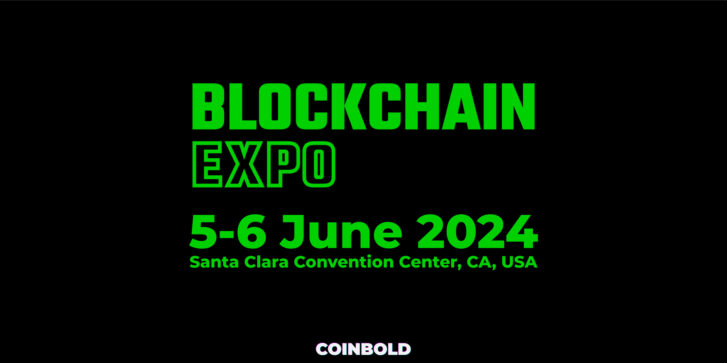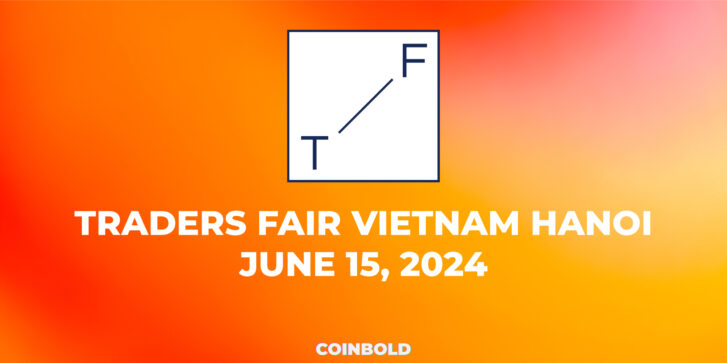In the ever-evolving world of blockchain technology, where innovation knows no bounds, one platform stands out as a beacon of hope for businesses, developers, and users alike. Aleph Zero, a cutting-edge layer-1 blockchain, is redefining the norms of scalability, security, and privacy. In this article, we’ll embark on a journey to unravel the mysteries of Aleph Zero, its innovative consensus protocol AlephBFT, and the boundless possibilities it offers to the blockchain ecosystem.
What is Aleph Zero?
Aleph Zero is a layer-1 blockchain that is designed to be scalable, secure, and private. It is based on a novel consensus protocol called AlephBFT, which uses a directed acyclic graph (DAG) to achieve high throughput and low latency. Aleph Zero is also designed to be interoperable with other blockchains, making it a good choice for building decentralized applications that require cross-chain communication.
Here are some of the key features of Aleph Zero:
- Scalability: Aleph Zero can process up to 10,000 transactions per second, making it one of the most scalable blockchains in the world.
- Security: Aleph Zero is a permissionless blockchain, which means that anyone can participate in the network. However, it is also very secure, thanks to its use of the AlephBFT consensus protocol.
- Privacy: Aleph Zero supports private smart contracts, which means that the details of transactions can be kept confidential.
- Interoperability: Aleph Zero is designed to be interoperable with other blockchains, making it a good choice for building decentralized applications that require cross-chain communication.
Aleph Zero is still under development, but it has the potential to be a major player in the blockchain industry. It is a good choice for businesses and developers who are looking for a scalable, secure, and private blockchain platform.
What is AlephBFT?
AlephBFT is a Byzantine Fault Tolerance (BFT) consensus protocol that is used by the Aleph Zero blockchain. BFT protocols are designed to ensure that all nodes in a network agree on the state of the blockchain, even if some of the nodes are malicious.
AlephBFT works by having a set of nodes, called validators, propose and vote on blocks. To propose a block, a validator must first create a unit, which is a small piece of data that contains the block’s header and some of its transactions. The unit is then broadcast to all of the validators.
The validators then vote on the units. To vote for a unit, a validator must verify that the unit is valid and that it has not been tampered with. If a majority of the validators vote for a unit, then the unit is added to the blockchain.
AlephBFT is designed to be scalable and efficient. It can handle a large number of transactions per second, and it does not require a lot of bandwidth or computing power.
Here are some of the key features of AlephBFT:
- It is a BFT protocol, which means that it is resistant to malicious nodes.
- It is scalable and efficient, making it suitable for use in a large-scale blockchain network.
- It is secure and reliable, making it a good choice for applications that require a high degree of trust.
AlephBFT is a promising new consensus protocol that has the potential to be used in a variety of blockchain applications. It is still under development, but it has already been shown to be scalable, efficient, and secure.
Here are some of the applications of AlephBFT:
- Decentralized finance (DeFi)
- Supply chain management
- Smart contracts
- Internet of Things (IoT)
- Digital identity
- Voting systems
AlephBFT is a promising new technology that has the potential to revolutionize the way we interact with the world around us. It is still under development, but it has already shown great promise.
Similar technologies to AlephBFT
AlephBFT is a Byzantine Fault Tolerance (BFT) consensus algorithm that is designed to be scalable and secure. It is similar to other BFT algorithms, such as Tendermint and Raft, but it has some key differences.
One of the main differences between AlephBFT and other BFT algorithms is that it uses a quorum-based approach to consensus. This means that a certain number of nodes must agree on the state of the blockchain before it can be committed. This makes AlephBFT more resistant to Byzantine faults, such as malicious nodes or network partitions.
Another difference between AlephBFT and other BFT algorithms is that it uses a delegated proof-of-stake (DPoS) system to select validators. In a DPoS system, users stake their tokens to vote for validators. The validators are then responsible for proposing and voting on blocks. This makes AlephBFT more democratic and decentralized than other BFT algorithms.
Here is a table comparing AlephBFT to Tendermint and Raft:
| Feature | AlephBFT | Tendermint | Raft |
|---|---|---|---|
| Consensus algorithm | Quorum-based BFT | BFT with light clients | State machine replication |
| Validator selection | Delegated proof-of-stake | Proof-of-stake | Round robin |
| Scalability | Horizontally scalable | Vertically scalable | Vertically scalable |
| Security | More resistant to Byzantine faults | Less resistant to Byzantine faults | Less resistant to Byzantine faults |
| Decentralization | More decentralized | Less decentralized | Less decentralized |
Overall, AlephBFT is a promising BFT consensus algorithm that offers a good balance of scalability, security, and decentralization. It is still under development, but it has the potential to be a major player in the blockchain space.
Here are some other similar technologies to AlephBFT:
- HotStuff: A BFT consensus algorithm that is designed to be scalable and efficient. It is used by the Libra blockchain.
- Casper FFG: A BFT consensus algorithm that is designed to be secure and fair. It is used by the Ethereum 2.0 blockchain.
- Zilliqa: A BFT consensus algorithm that is designed to be scalable and secure. It is used by the Zilliqa blockchain.
The choice of which consensus algorithm to use depends on the specific requirements of the application. If performance and scalability are the top priorities, then AlephBFT is a good option. If security is the top priority, then PBFT may be a better choice. And if simplicity and ease of implementation are the top priorities, then Raft may be a better choice.
Aleph Zero team
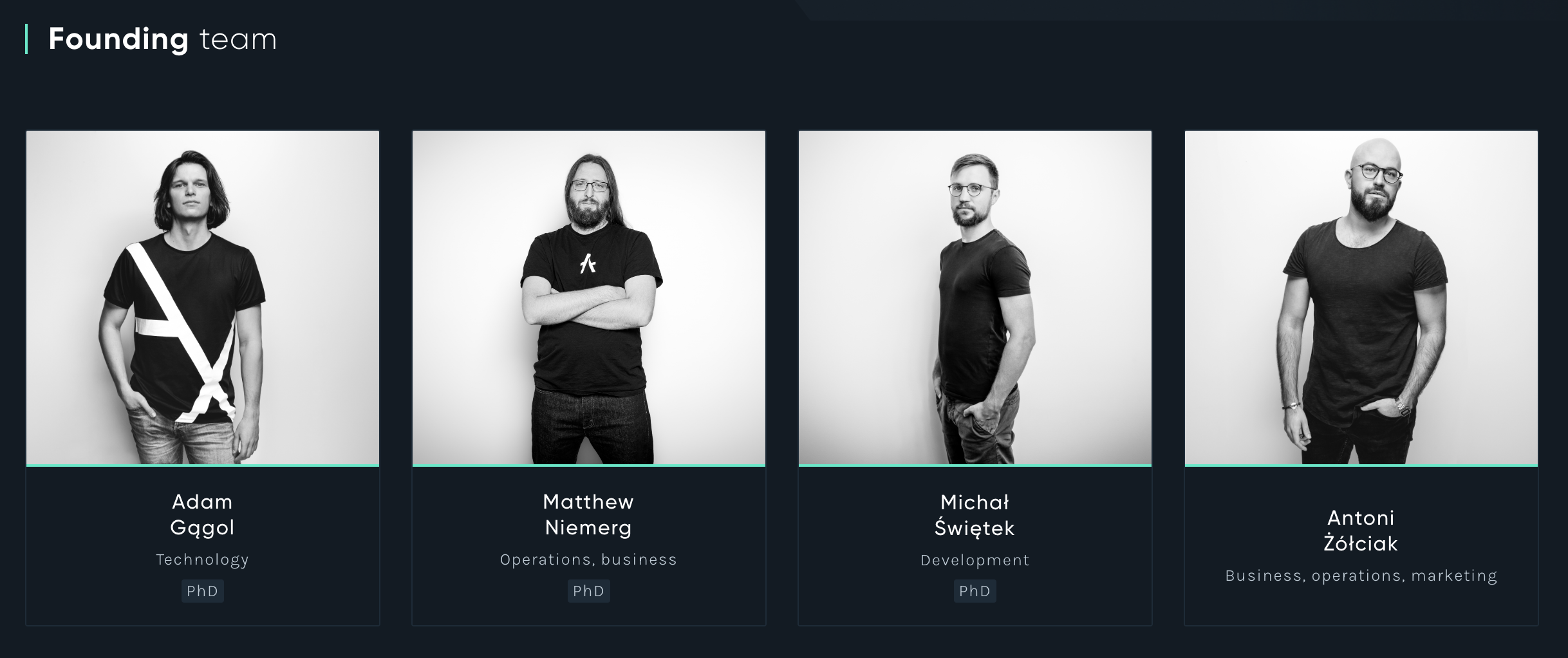
The founding team of Aleph Zero
- Adam Gągol is the Chief Technology Officer of Aleph Zero. He has a PhD in Computer Science from the University of Warsaw, where he specialized in distributed systems and cryptography. He has over 10 years of experience in the field of blockchain technology, and has worked on projects such as Ethereum and Hyperledger Fabric.
- Matthew Niemerg is the Chief Operating Officer of Aleph Zero. He has a PhD in Economics from the London School of Economics, where he specialized in financial markets. He has over 10 years of experience in the financial industry, and has worked on projects for Goldman Sachs and Morgan Stanley.
- Michał Świętek is the Head of Engineering of Aleph Zero. He is a PhD in Computer Science from the University of Warsaw, where he specialized in distributed systems. He has over 10 years of experience in the field of software engineering, and has worked on projects such as Google Chrome and Firefox.
- Antoni Żółciak is the Head of Marketing at Aleph Zero. He is a graduate of Kozminski University in Warsaw, where he studied International Management. He has over 5 years of experience in the marketing industry and has worked on projects for Google and Amazon.
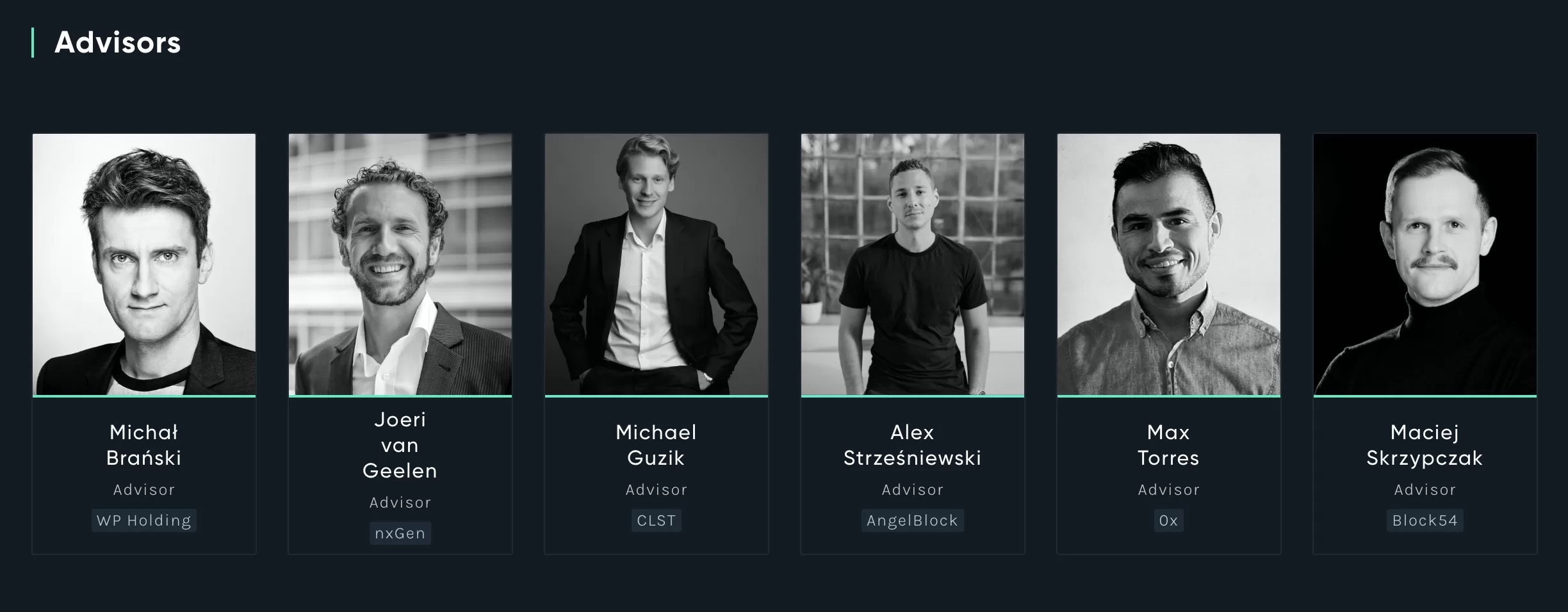
Aleph Zero advisors
- Michał Brański is a Partner at WP Holding, a venture capital firm that invests in early-stage technology companies.
- Joeri van Geelen is the CEO of nxGen, a blockchain infrastructure company.
- Michael Guzik is the CEO of CLST, a blockchain security company.
- Alex Strześniewski is the CEO of AngelBlock, a blockchain investment firm.
- Max Torres is the Head of Business Development at 0x, a decentralized exchange protocol.
- Maciej Skrzypczak is the CEO of Block54, a blockchain consulting firm.
The Aleph Zero team is a diverse group of experts with a wide range of experience in blockchain technology, finance, and software engineering. They are committed to building a secure, scalable, and user-friendly blockchain platform that can be used to power a wide range of applications.

Tokenomics: Aleph Zero token
The tokenomics of Aleph Zero are designed to incentivize staking, promote the growth of the ecosystem, and ensure the long-term sustainability of the network.
The tokenomics of Aleph Zero (AZERO) are as follows:
- Total supply: 300 million AZERO
- Initial circulating supply: 160 million AZERO
- Annual inflation: 30 million AZERO
- Staking rewards: 30 million AZERO
- Burn mechanism: None, but not ruled out in the future
- Allocation:
- Aleph Zero Foundation: 23% of the total supply. This allocation will be used to fund the development and maintenance of the Aleph Zero network, as well as to provide grants to developers and other ecosystem participants.
- Team: 10% of the total supply. This allocation will be used to compensate the team for their work on developing and maintaining the Aleph Zero network.
- Ecosystem Fund: 17% of the total supply. This allocation will be used to fund initiatives that promote the growth and development of the Aleph Zero ecosystem.
- Public sale: 50% of the total supply. This allocation will be sold to the public through a variety of channels, such as an initial coin offering (ICO) or a security token offering (STO).
Here are some of the benefits of staking AZERO tokens:
- You can earn staking rewards, which are paid out in newly minted AZERO tokens.
- You help secure the Aleph Zero network and make it more resistant to attack.
- You become a part of the Aleph Zero community and help shape its future.
If you are interested in staking AZERO tokens, you can do so by joining a staking pool or running your own validator node. For more information, please visit the Aleph Zero website.
How do I earn an Aleph Zero token?
Aleph Zero is a Proof-of-Stake (PoS) blockchain, so it does not use mining. Instead, users can stake their AZERO token to participate in the consensus mechanism and earn rewards.
To stake AZERO, you will need to create a wallet and deposit your token. You can then choose to become a validator or a nominator.
- Validators are responsible for running nodes and validating blocks. They need to have a high amount of AZERO staked and meet certain technical requirements.
- Nominators stake their coins to support validators. They do not need to run nodes, but they do need to choose validators that they trust.
The rewards for staking are distributed based on the amount of AZERO staked and the time it is staked for. Validators earn more rewards than nominators, but they also have more responsibility.
Here are the steps on how to stake AZERO:
- Create a wallet. You can use a hardware wallet, a software wallet, or a web wallet.
- Deposit your AZERO coins into your wallet.
- Choose whether to become a validator or a nominator.
- If you choose to become a validator, you will need to meet the technical requirements and run a node.
- If you choose to become a nominator, you will need to choose validators that you trust.
- Once you have chosen your role, you can start staking your AZERO coins.
You can find more detailed instructions on how to stake AZERO on the Aleph Zero website.
Vesting schedule: Aleph Zero token
The Aleph Zero token supply will be unlocked on a vesting schedule over a period of 4 years. The following is a breakdown of the vesting schedule:
| Token Allocation | Percentage of Total Supply | Total Tokens (in millions) | Vesting Schedule |
|---|---|---|---|
| Foundation | 23.3% | 79.47 | 20% on TGE, 10% every 3 months for 4 years |
| Pre-Sale | 18.3% | 62.44 | 50% on TGE, 50% linearly over 1 year |
| Pre-Seed | 16.7% | 56.78 | 50% on TGE, 50% linearly over 15 months |
| Seed | 16.7% | 50.00 | 71.4% on TGE, 28.6% linearly over 6 months |
| Team | 10.0% | 34.06 | 20% on TGE, 80% linearly over 4 years |
| Public Sale | 10.0% | 34.06 | 100% on TGE |
| Community Sale | 5.0% | 17.03 | 100% on TGE |
The total supply of AZERO tokens is 300 million. The vesting schedule is designed to ensure that the tokens are released gradually over time, which will help to prevent a sudden influx of tokens into the market and reduce the potential for price volatility.
Aleph Zero roadmap
Aleph Zero is a cutting-edge technology company that specializes in the development of advanced blockchain infrastructure. In order to provide transparency and insight into their future plans, Aleph Zero has laid out a comprehensive roadmap outlining their goals and objectives for the coming years. This roadmap serves as a guiding document that outlines the key milestones and initiatives that Aleph Zero aims to achieve in order to revolutionize the blockchain industry.
- Phase 1: Research and Development (2020-2022) The initial phase of Aleph Zero’s roadmap focused on intensive research and development activities. During this period, the team delved into various aspects of blockchain technology, including consensus mechanisms, scalability solutions, privacy enhancements, and security measures. Through extensive experimentation and testing, Aleph Zero aimed to develop a robust and efficient blockchain infrastructure that could address the limitations faced by existing blockchain platforms.
- Phase 2: Core Infrastructure Deployment (2022-2023) Building upon the foundations established during the research phase, Aleph Zero moved into the deployment stage. This phase involved rolling out the core infrastructure necessary to support the future growth and expansion of the platform. Aleph Zero meticulously developed an optimized protocol architecture, taking into account factors such as transaction speed, scalability, and energy efficiency. The core infrastructure was designed to be highly modular and flexible, enabling seamless integration with third-party applications and services.
- Phase 3: Integration and Partnerships (2023-2024) With a solid foundation in place, Aleph Zero shifted its focus towards forging strategic partnerships and integrating its technology with other platforms and industries. Collaboration with established enterprises, startups, and academic institutions enabled Aleph Zero to expand its network and leverage the expertise of industry leaders. By integrating their blockchain infrastructure with existing systems, Aleph Zero sought to enhance interoperability and facilitate the adoption of blockchain technology across multiple sectors.
- Phase 4: Mass Adoption and Community Building (2024-2026) In this phase, Aleph Zero aimed to drive widespread adoption of its blockchain infrastructure. The company focused on educating the masses about the transformative potential of blockchain technology and its applications in various domains such as finance, supply chain management, healthcare, and more. Aleph Zero actively engages with communities, organizing workshops, meetups, and conferences to foster knowledge sharing and collaboration. Through these efforts, Aleph Zero sought to build a vibrant ecosystem around its platform, attracting developers, entrepreneurs, and users alike.
- Phase 5: Continuous Improvement and Innovation (2026 onward) As Aleph Zero’s platform gained traction and entered mainstream usage, the company dedicated itself to continuous improvement and innovation. This phase involved actively monitoring user feedback, identifying pain points, and incorporating necessary upgrades to enhance performance, security, and usability. Aleph Zero remained committed to staying at the forefront of blockchain technology, exploring emerging trends such as zero-knowledge proofs, quantum resistance, and decentralized governance models. By consistently pushing the boundaries, Aleph Zero aimed to maintain its position as a leader in the blockchain space.
To summarize, Aleph Zero’s roadmap outlines a clear and well-defined path for the development and growth of their blockchain infrastructure. Through intensive research, core infrastructure deployment, strategic partnerships, mass adoption initiatives, and continuous innovation, Aleph Zero aims to revolutionize the blockchain industry and usher in a new era of decentralized and secure digital ecosystems.
Aleph Zero has been to events
Aleph Zero has been making waves on the global stage, participating in renowned blockchain events, including:
- Next Block Expo 2022 in Berlin, Germany (November 23–24, 2022): Aleph Zero debuted its multichain privacy framework Liminal at this event, which also hosted a hackathon, workshops, and keynote speeches.
- Permissionless in Miami, Florida (March 8–10, 2023): Aleph Zero co-hosted two intimate events at this conference, which is one of the largest blockchain events in the world.
- Paris Blockchain Week Summit in Paris, France (March 22–23, 2023): Aleph Zero was a speaker at this event, which is one of the most important blockchain conferences in Europe.
- AIBC Summit in Dubai, United Arab Emirates (March 14–16, 2023): Aleph Zero spoke at a panel on the importance of user experience and privacy in blockchain applications at this event.
- ZK Hack Lisbon in Lisbon, Portugal (March 8–10, 2023): Aleph Zero hosted a workshop at this hackathon that focused on zero-knowledge proofs.
Aleph Zero is also planning to attend several other events in the coming months, including:
- ETH Rio in Rio de Janeiro, Brazil (March 27–30, 2023)
- Blockchain Summit of the Americas in Miami, Florida (April 25–27, 2023)
- Web Summit in Lisbon, Portugal (November 8–11, 2023)
These events are a great opportunity for Aleph Zero to connect with potential users, partners, and investors. They also help to raise awareness of the project and its mission to build a more scalable, secure, and privacy-friendly blockchain.
Conclusion
Aleph Zero is not just a blockchain; it’s a catalyst for change. Its unparalleled scalability, security, and privacy features, coupled with the innovative AlephBFT consensus protocol, make it a formidable player in the blockchain arena. As it journeys through its roadmap, forging partnerships, and engaging with communities, Aleph Zero is poised to transform the way we perceive and interact with blockchain technology. The future is bright, and Aleph Zero is leading the way.
